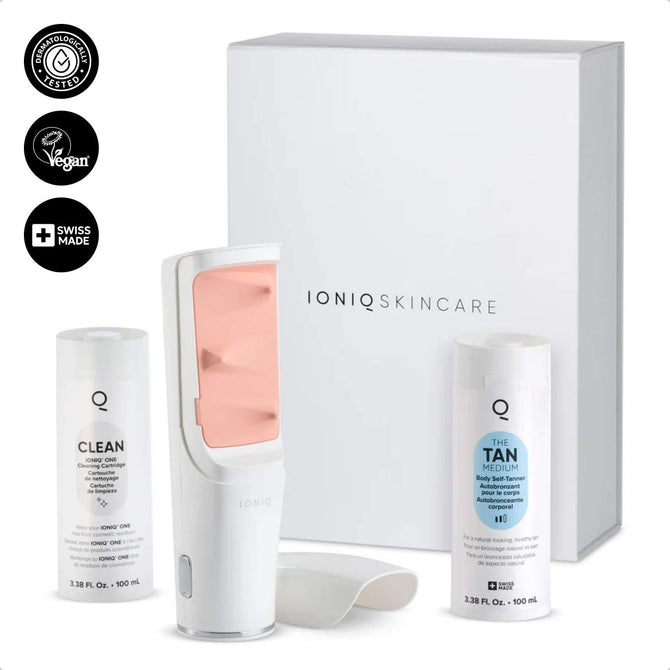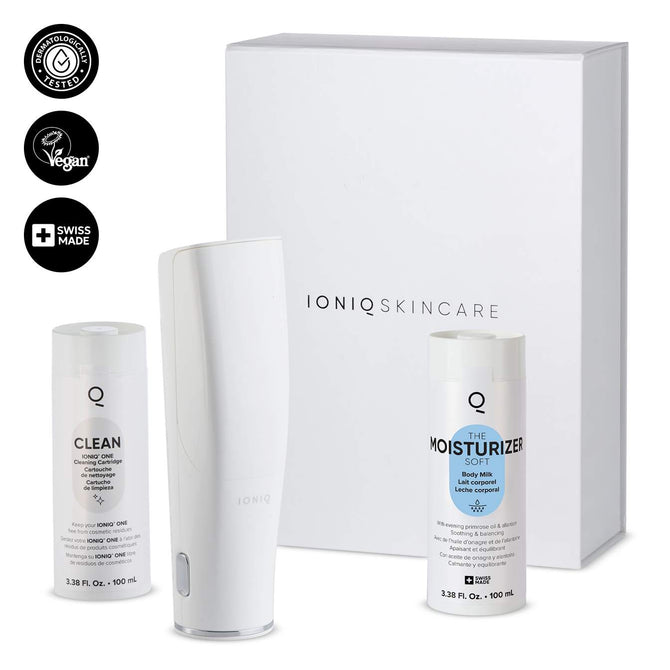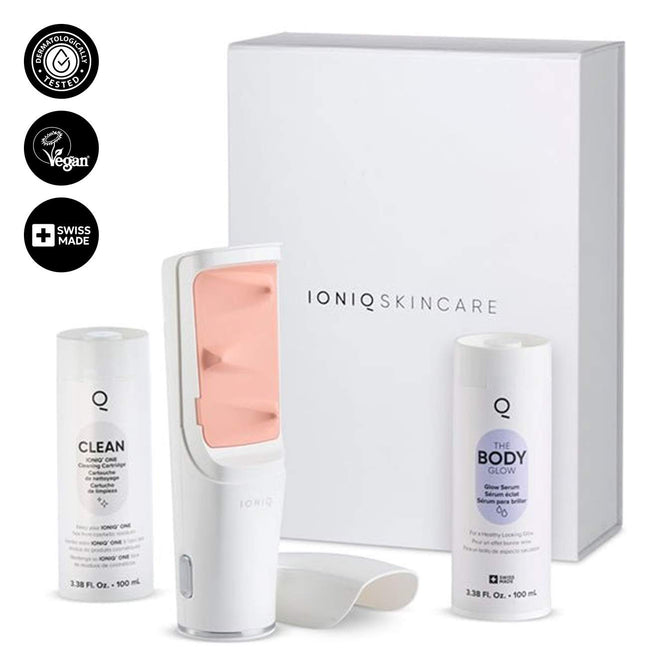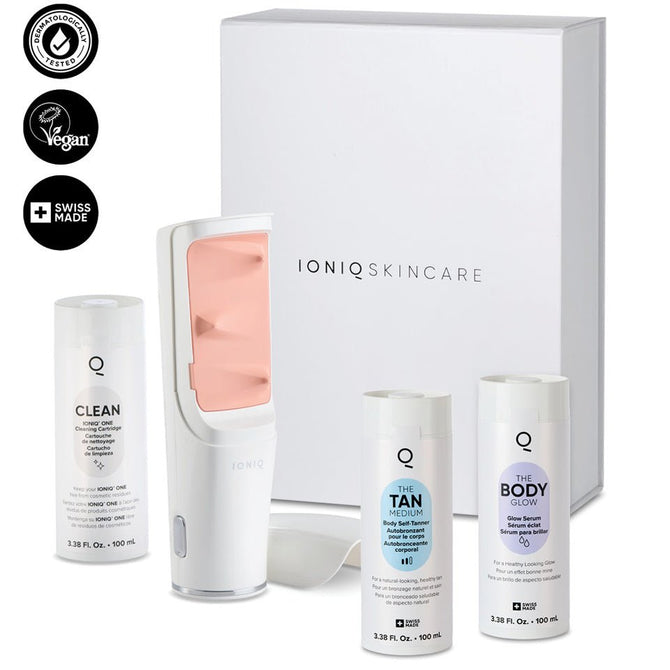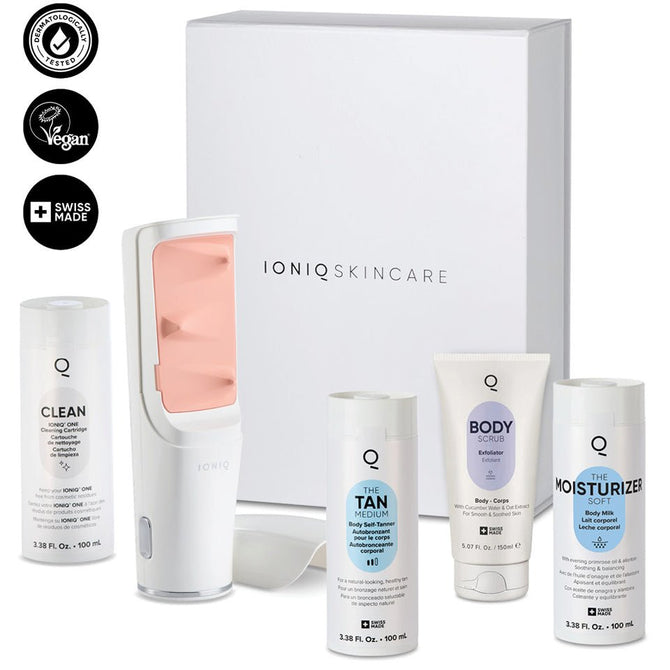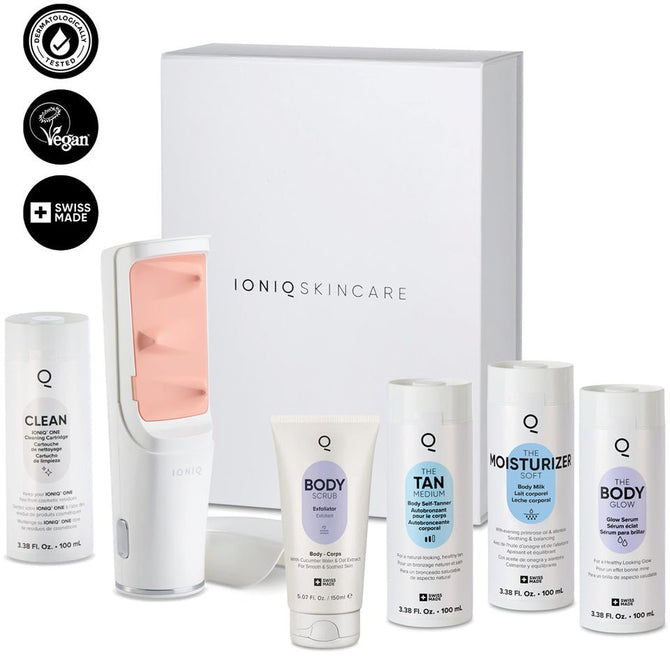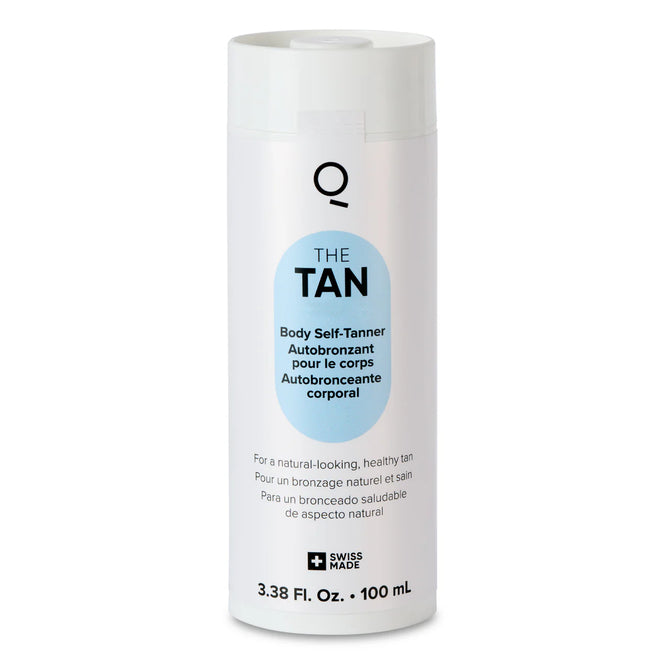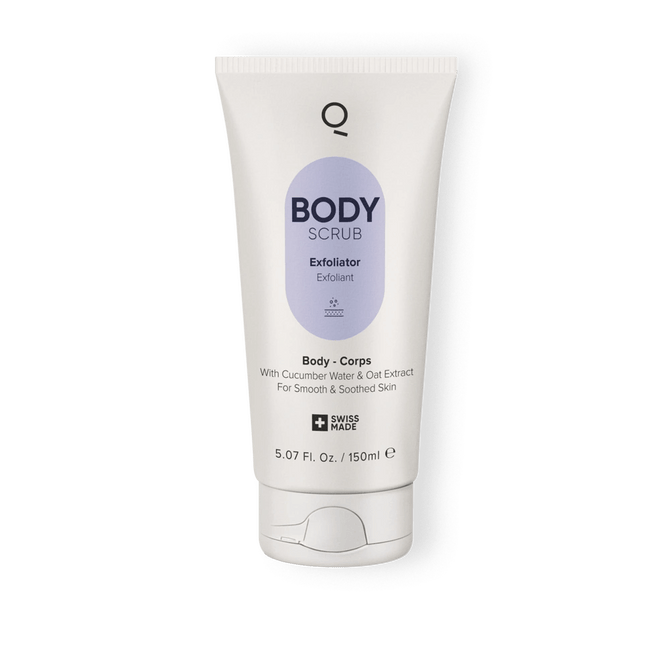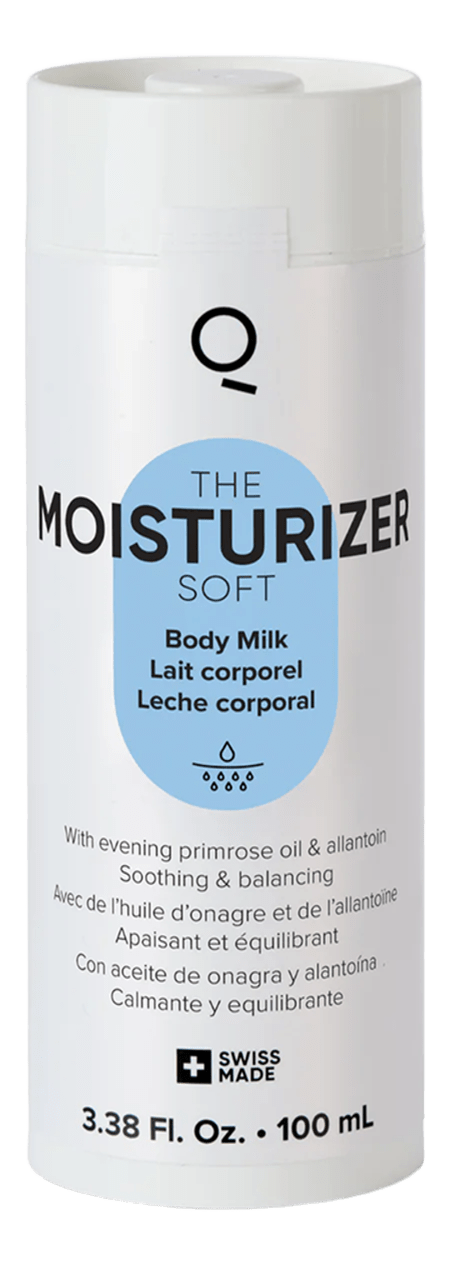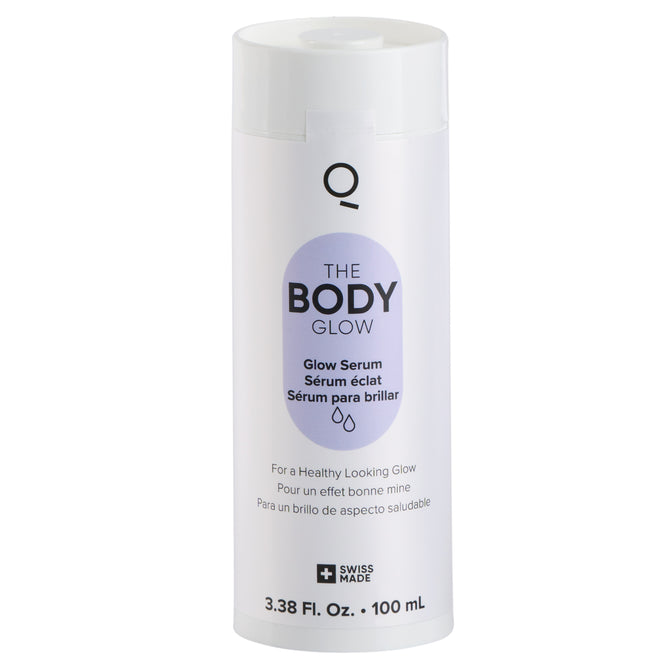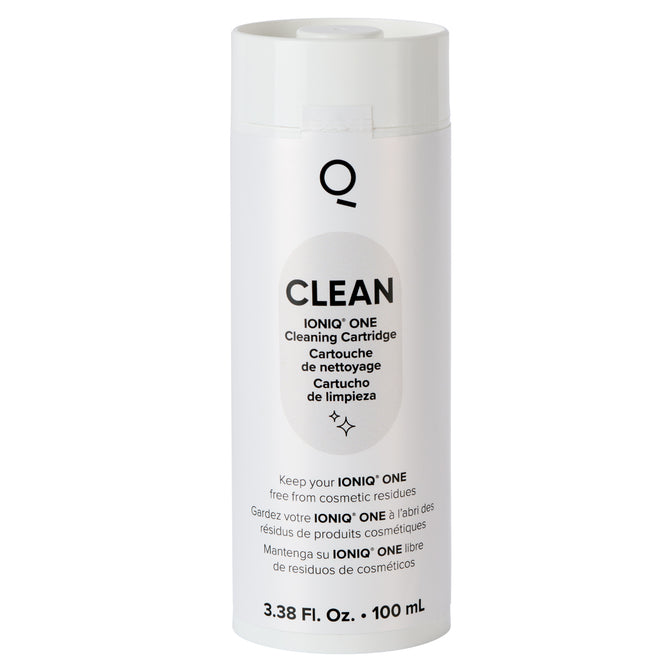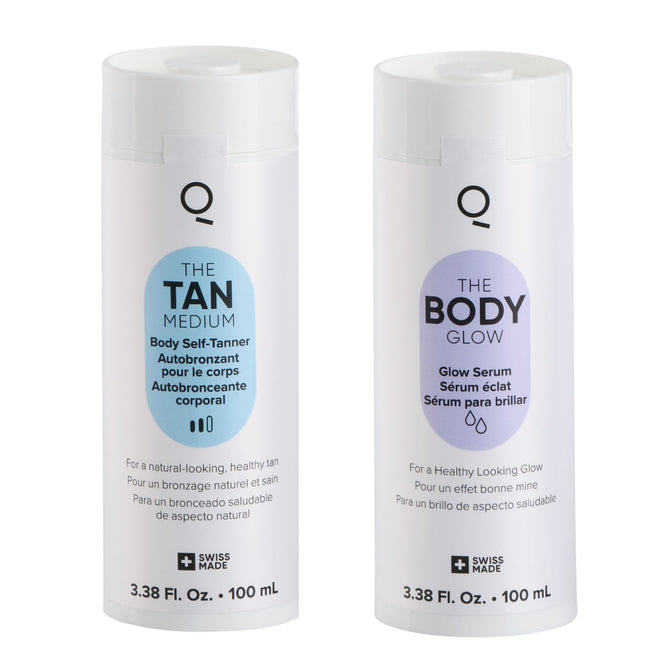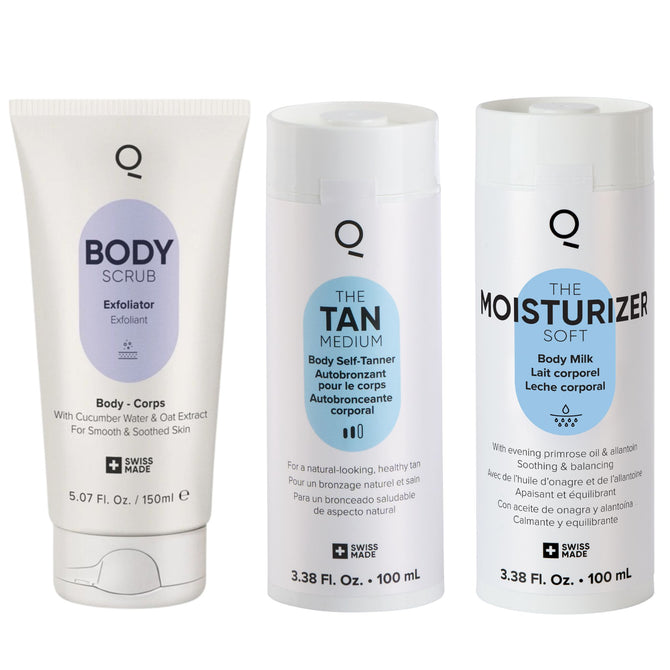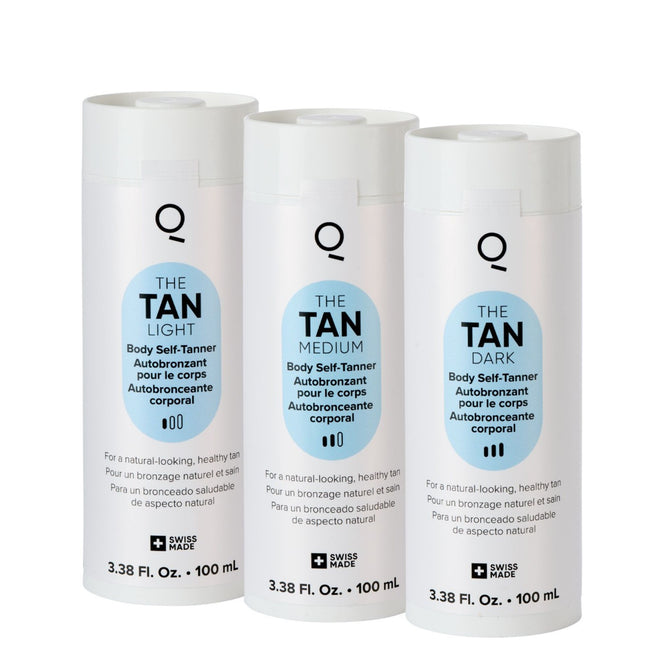
Tanning beds have long been a go-to for people chasing that sun-kissed glow, no matter the season. But let’s break it down: how much is a tanning bed session really costing you? If you’re heading to the salon a couple of times a month, the expenses can pile up quickly. This guide takes a closer look at the actual tanning bed cost—including the not-so-obvious extras.
In this guide, we’ll walk through how much it is to go to a tanning bed, why it remains popular, what impacts pricing, and why many are now switching to at-home alternatives that deliver safer, more consistent results without the extra effort.
Why Do Tanning Bed Sessions Become Popular?
Tanning beds have been around for decades, and despite growing awareness of their risks, they’re still widely used. The reasons for this vary, but the pattern is consistent.
Year-Round Color
People want a tan that doesn’t rely on sunny weather or vacations. Whether it’s winter, a cloudy climate, or prepping for an event, tanning beds offer a way to maintain that sun-kissed look year-round.
Perceived Convenience of the Tanning Bed
Tanning salons promote short sessions with walk-in access. On the surface, it looks fast and easy—just book, tan, and go. However, that simplicity often disappears once you add up the travel, wait times, and regular scheduling.
Frustration with Other Products
Some people turn to tanning beds after having poor results with self-tanners. Streaks, uneven application, orange tones, and stained clothing are all common complaints with traditional at-home products.
But just because tanning beds are still used doesn’t mean they’re the best solution. The drawbacks are real—ranging from significant health risks to hidden financial costs and inconsistent outcomes.
This is exactly why many people are now switching to smarter self-tanning options. One of the most innovative choices available today is the IONIQ ONE Sprayer + TAN, an at-home spray tan system. It offers consistent, natural-looking color without UV exposure, salon visits, or messy application routines. We’ll explore how that stacks up in later sections. IONIQ Skincare’s wraparound effect ensures that every drop of mist sticks to your skin like a magnet
Magnetic Skin Technology
How Much Is a Tanning Bed Session at a Glance
Now let’s get into the question most people are really asking: how much does it cost to use a tanning bed?
The answer isn’t as simple as a flat rate. There are different pricing models depending on location, bed type, and how often you go.
Average Cost per Tanning Bed Session
-
Standard tanning bed visit: $20 - $40
-
Discount packages or memberships: may lower per-session costs, but require upfront commitments
How Much Does a Regular, High-Pressure, or Stand-Up Tanning Bed Cost?
Not all tanning bed sessions are priced the same. Different tanning bed types offer different features—and that impacts how much you’ll pay.
Regular Tanning Beds (Low-Pressure)
Low-pressure tanning beds use a broader range of UV wavelengths and typically require multiple sessions to see noticeable color. These are the most affordable options but require more frequent use.
-
How much is a session: $20 - $40
-
Often the most basic option at salons
-
Require more frequent visits for results
High-Pressure Tanning Beds
This tanning bed type uses a concentrated UV range to produce faster, deeper tans. They’re often marketed as higher-end.
-
How much is a session: $30 - $60
-
Deliver faster, deeper tans with fewer sessions
-
Positioned as “premium” options
Stand-Up Tanning Beds
The main difference between stand-up and lay-down tanning beds is how you position your body—and how even the tan turns out. Both options have limits when it comes to reaching every angle and avoiding patchy results.
-
How much is a session: $30 - $50
-
Claimed to provide more even coverage
-
Shorter sessions but often cost more
While that might seem manageable at first, most people don’t stop at one or two visits.
Luxury Tanning Beds
Some salons offer high-end beds with features like built-in fans, aroma systems, facial tanners, or red light therapy.
Luxury tanning beds:
-
How much is a session: $50 - $75
-
Marketed as "skin-safe" or "anti-aging," but still use UV light
-
Often require an additional fee, even with memberships
While these beds seem appealing, they don’t eliminate the risks tied to UV exposure—and the added cost rarely justifies the results.
Cost Comparison: Single Session vs. Packages vs. Memberships
If you plan to tan regularly, many salons will push package deals or monthly memberships. On the surface, these offer savings—but let’s look at the numbers.
Single Session
-
How much is a visit: $20 - $60
-
Best for occasional use
-
Adds up quickly for repeat customers
Prepaid Packages
-
5 to 10 sessions for a bundled price (e.g. 5 sessions for $90)
-
Slightly cheaper per session ($18 - $25)
-
Expire after a set time
Monthly Memberships
-
$60 to $120/month for unlimited sessions
-
Often come with hidden fees, upgrade charges, and cancellation clauses
-
Only worth it if you tan 3 - 4+ times per month
These options can reduce your cost per session, but they also lock you into a salon routine that’s hard to break—and rarely flexible.
Yearly Cost Estimate
Let’s say you visit a salon twice per month at an average of $40 per session.
-
2 sessions/month = $80
-
12 months = $960
-
Occasional upgrades or booster sessions can easily push this to $1000 - $1200 annually
That estimate doesn’t include what many people spend on extra services or the time investment it takes to maintain regular appointments.
Hidden Costs You Might Not Expect
When people ask how much is a tanning bed session, most are thinking of the sticker price—the $20 to $40 listed on the salon menu. But what often gets overlooked are the hidden extras that add up over time. These small costs can quietly double or even triple what you thought you were spending. Here’s what to watch out for.
Eye Protection Goggles and Add-Ons
Tanning without eye protection isn’t just unsafe—it’s usually not allowed. Most salons require you to wear goggles during a session. If you don’t bring your own, expect to buy or rent a pair.
-
How much are disposable eye covers: $1 - $3 per session
-
How much are reusable goggles: $5 - $15 upfront
-
Replacement fees if you lose them
It sounds minor, but over a year, those few dollars per visit add up—especially if you’re paying for extras like cleaning wipes or upgraded covers.
Lotion and Tanning Enhancers
Most salons strongly recommend—or even pressure you into buying—lotions, bronzers, or tanning accelerators. Some are meant to “prep” your skin before a session, while others are designed to help your tan last longer.
-
How much are basic lotions: $10 - $25 per bottle
-
How much are bronzers and intensifiers: $30 - $60
-
Some salons require lotion use to avoid “dry skin fees”
In some cases, not using these products may affect your results, forcing you to tan more frequently.
Upgrade Fees for Premium Beds
You might sign up for a monthly membership thinking you’re getting unlimited tanning—but that only applies to basic beds. Want to use a stand-up unit, high-pressure bed, or anything newer? Get ready to pay extra.
-
Upgrade fees: $5 - $15 per session
-
Sometimes applied even with a premium plan
-
Unexpected charges during busy times when only premium beds are available
This makes it hard to predict your monthly cost and often leads to surprise fees on your account.
Transportation
Getting to and from the salon isn’t free. Whether you’re driving yourself, taking a ride-share, or paying for parking, every trip adds up.
-
Gas or public transport: $5 - $10 per visit
-
Ride-shares or paid parking: sometimes more, depending on your location
-
Time lost commuting: usually not considered—but always felt
If you’re tanning twice a month, that’s an extra $120+ per year just getting there and back. With the IONIQ ONE Sprayer + TAN, there’s no travel needed. Tan at home, at your pace, without carving out time for a round trip.
Tips
Tipping may not be required, but it’s often expected—especially at full-service salons. Over time, it becomes part of the cost.
-
Typical tip: $3 - $10 per session
-
Annual total: $70 - $240 if you go just twice per month
Add that to your base cost, and you're no longer paying $25 per session—you're edging closer to $40.
Time Commitment
A tanning session might only last 10 to 15 minutes—but the overall time it takes is rarely that short.
-
Booking appointments
-
Driving to the salon
-
Waiting for your turn
-
Getting dressed again afterward
Even a “quick” session can turn into an hour-long task once you factor everything in. The IONIQ ONE Sprayer + TAN gives you a full-body tan in 3 minutes—without driving, waiting, or working around business hours. “Device's key ingredient (DHA) for tanning is FDA-approved” “It creates a streak-free, beautiful bronze without the help of a pro.” “Achieving an even, sun-kissed glow has never been easier” “Perfect DIY spray tan with ease and no mess.”



Are Tanning Bed Sessions Worth the Cost?
Tanning beds promise a quick, bronzed look. But when you factor in time, money, and long-term skin health, it’s worth asking—do they actually deliver enough value to justify the price? Let’s break it down.
Price vs. Results: Is It Effective?
A typical tanning bed session costs between $20 and $40. You might see results after a few visits—but they don’t last long. Most people need regular weekly or bi-weekly sessions to maintain their color. That means you’re constantly spending money just to keep up appearances.
And even then, results can vary:
-
Uneven color, especially on sides or underarms
-
Missed spots due to pressure points from lying down
-
Fading within days if not followed with pricey aftercare
Now compare that with the IONIQ ONE Sprayer + TAN. You get:
-
Even, streak-free results
-
Coverage of every curve and angle thanks to Magnetic Skin Technology
-
No salon visits, no pressure lines, no reapplication every few days
It’s more effective, more consistent, and way more convenient.
Comparing Cost of Tanning Beds vs. IONIQ ONE Sprayer + TAN
Let’s look at what you actually spend over time.
Tanning Beds:
-
$25 per session (avg)
-
2 sessions per month = $50/month
-
12 months = $600
-
Add tips, travel, and extras = $1,000+ per year
IONIQ ONE Sprayer + TAN:
-
One-time device with multiple uses
-
No tipping, no transportation, no monthly fees
-
Cartridges last 2 - 3 full-body tans
-
At-home convenience = huge time savings
Tanning Bed vs. IONIQ ONE Sprayer + TAN
|
Feature |
Tanning Bed Session |
IONIQ ONE Sprayer + TAN |
|
Average Cost |
$20 - $40 per session |
~$7 - $12 per application (after device cost) |
|
Annual Cost (2x/month) |
$620 - $1000+ (not including tips, travel) |
~$299 - $598 (device + 12–24 uses/year) |
|
UV Exposure |
Yes — increases risk of skin damage and cancer |
None — 100% UV-free formula |
|
Result Time |
3 - 5 sessions to build color |
Visible in 6 - 8 hours |
|
Color Duration |
3 - 5 days on average |
Lasts 7 - 9 days |
|
Even Coverage |
Can be uneven (missed spots, pressure lines) |
Wrap-around mist + Magnetic Skin Tech = even, flawless tan |
|
Add-On Products Needed |
Often required (lotions, goggles, upgrades) |
No add-ons needed — all-in-one solution |
|
Convenience |
Travel, scheduling, wait times |
Tan anytime at home in 3 minutes |
|
Commitment |
Requires recurring visits and costs |
No memberships or appointments needed |
|
Skin Benefits |
Can dry and damage skin over time |
Aloe-infused, vegan, skin-friendly formula |
Tanning Bed Cost vs. Health Risks
It’s easy to think about how much is a tanning bed session in terms of dollars and cents. But the real cost isn’t just financial. Tanning beds expose your body to concentrated UV radiation, and that comes with serious long-term health consequences.
Even occasional use increases your risk of developing skin issues that aren’t just cosmetic—they can be life-threatening or extremely expensive to treat. "I use self tanner in the summer and I usually hate it. Even after years of use I usually still have streaks or dark spots somewhere where I misapplied. Then I had to worry about my sheets and clothes being stained and the horrible smell. It’s incredible! So easy to use, I swear I made myself nervous reading the instructions over and over for no reason. I have never in 30+years of tanning had such an easy experience." "I’ve tried practically everything out there over the last 30 years. I had an allergic reaction to most of them so I opted for tanning beds and the good old sun. I got melanoma 2015 so that stopped all types of tanning. Until now. Wow!! Technology has improved so much! I’m amazed at how easy it is to use as well as how absolutely flawless it looks!" "Wow! I took a chance and bumped the color up a notch to dark !!!! I received so many compliments on how even and smooth my tan looks on my face!! What a high compliment to YOU and YOUR product and to me, because I follow the application instructions :) Thank you for the prompt receipt of my orders placed AND thank you for caring enough about your product, to inquire about my personal preference and addiction to IONIQ SKINCARE. Thank you for the gifted product."
Smart Tanning. Visible Results.
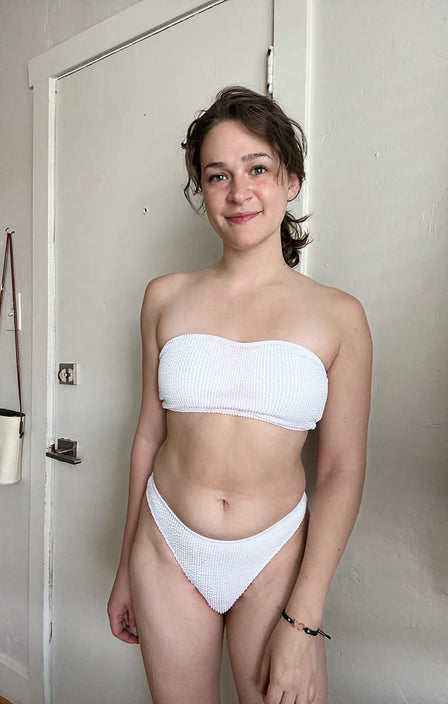
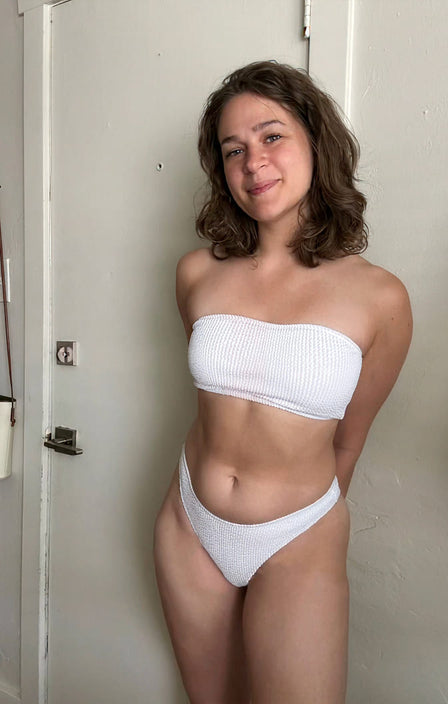
Worth its weight in gold!
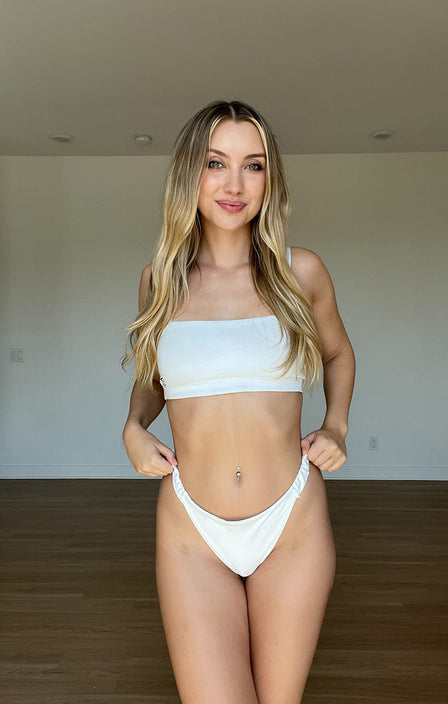
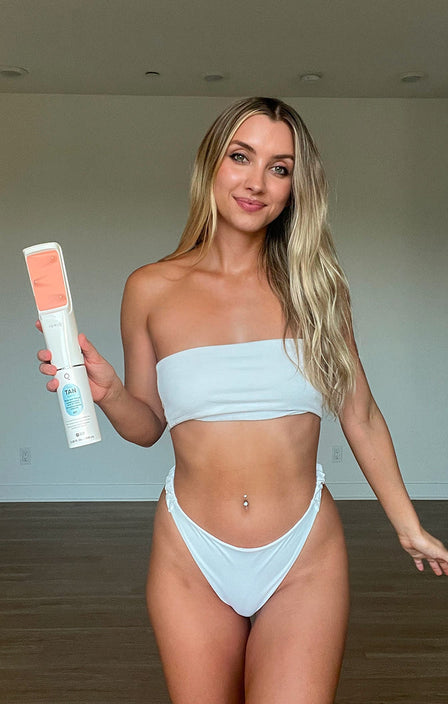
Great product!!
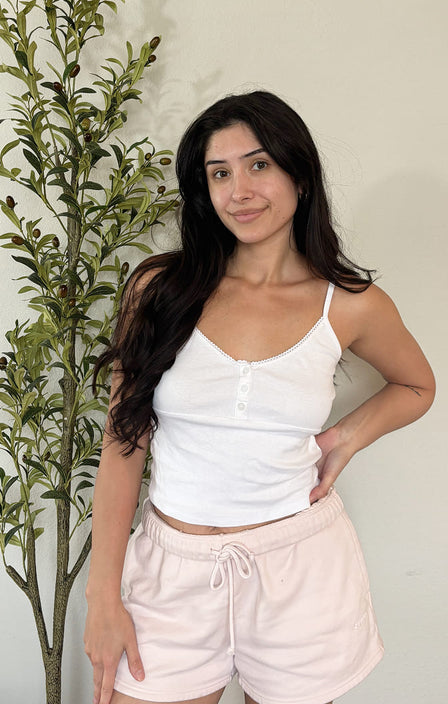

Sincere IONIQ Tanner
Long-Term Skin and Health Impacts
Each time you use a tanning bed, you’re exposing your skin to artificial UV rays. These rays penetrate deep into the skin and cause damage that builds over time. This is why dermatologists consistently warn against indoor tanning.
Proven long-term risks include:
-
Increased risk of melanoma, the deadliest form of skin cancer
-
Higher likelihood of developing basal cell and squamous cell carcinoma
-
Premature aging, including deep wrinkles, sagging, and leathery texture
-
Development of sunspots, hyperpigmentation, and uneven tone
Even one tanning bed session can cause DNA damage to skin cells. And frequent sessions? They can lead to permanent changes in skin texture and elasticity—even if you’re still young.
The IONIQ ONE Sprayer + TAN delivers color without the consequences. It uses a skin-friendly, aloe-based formula that nourishes while it tans—no radiation, no burning, and no long-term risk to your skin.
Insurance and Medical Costs Related to UV Exposure
Medical costs associated with tanning-related skin conditions are no small expense. Treating skin cancer is not only emotionally and physically taxing—it’s also expensive.
What tanning bed use could cost you down the line:
-
How much are dermatology checkups: $100 - $250 per visit
-
How much are biopsies and lab work: $150 - $500+ per procedure
-
How much is treatment for skin cancer: Can range from $5,000 to $100,000+, depending on severity and whether surgery, chemotherapy, or radiation is needed
-
How much are prescription creams or procedures to treat sunspots, wrinkles, and damage: $300 - $1,500+
And that doesn’t even account for time off work, long-term monitoring, or emotional stress. Many insurance plans may not cover cosmetic procedures or early-prevention treatments. With IONIQ, there are no medical risks to budget for. You get a safe tan without exposing yourself to UV rays or increasing your lifetime healthcare costs.
Is the Glow Worth It?
When you start to calculate not just how much does it cost to use a tanning bed, but what that cost really includes—it’s a different story.
Sure, the price tag might say $25, but what you’re really paying for could include:
-
Cumulative skin damage
-
A future filled with dermatology visits
-
A higher lifetime risk of cancer
-
Expensive treatments to reverse or manage the effects
Tanning beds may offer short-term glow, but they come with long-term trade-offs that just aren’t worth it.
Why It’s Time to Ditch the Tanning Bed
By now, the real answer to how much is a tanning bed session is clear—it’s not just about a $30 visit. It’s the repeated expense, the health risks, the time lost, and the inconsistency that makes it far more costly than people expect.
Tanning beds might still be common, but they’re outdated. What once seemed like an easy solution now comes with serious downsides:
-
Regular exposure to harmful UV rays
-
Premature aging and long-term skin damage
-
Missed spots, pressure lines, and uneven color
-
Constant spending on memberships, upgrades, and add-ons
-
Time lost driving, waiting, and managing appointments
The risks are real. The costs are ongoing. And the glow just isn’t worth it anymore. From holiday parties to family gatherings, achieve a flawless tan that lasts all season.
Shop Now
The IONIQ ONE Sprayer
+ TAN Bundle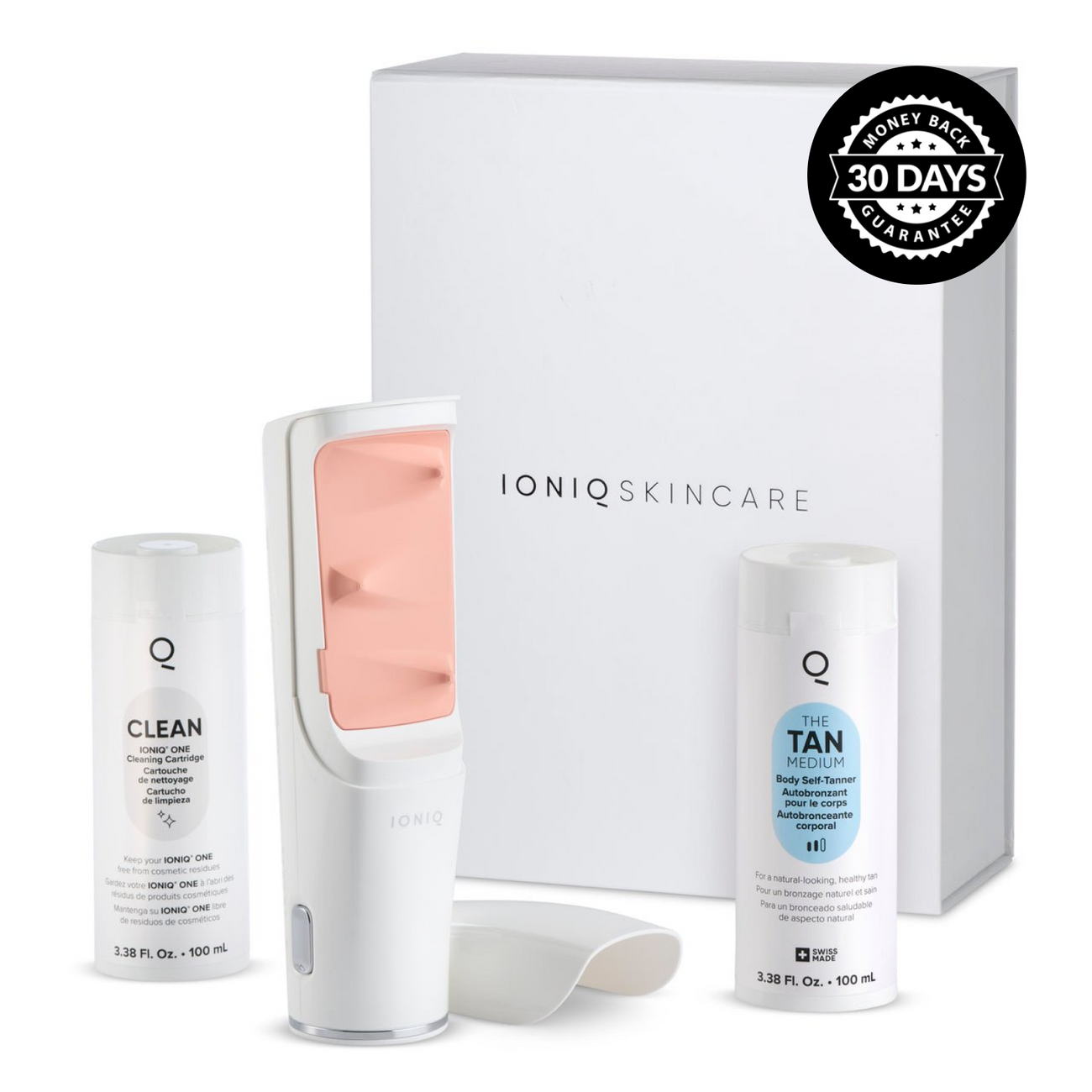
A Healthy Alternative: IONIQ ONE Sprayer + TAN
If you’re ready to break up with tanning beds, the IONIQ ONE Sprayer + TAN makes it easy—and way smarter.
This isn’t just another self-tanner. It’s a high-tech, at-home solution designed for people who want flawless, natural-looking results without sacrificing skin health or wasting time.
Why IONIQ is different:
-
Zero UV exposure. Get your glow without the risk of long-term damage.
-
Magnetic Skin Technology for even, streak-free coverage on every curve.
-
Cordless, lightweight, and splash-proof, so you can tan wherever you are.
-
Wrap-around mist—no rubbing, no missed spots, no awkward lines.
-
Skin-nourishing formula that’s vegan, aloe-infused, and free of silicones, parabens, and sulfates.
-
Bluetooth-connected app with usage tips, battery tracking, and fill level alerts.
Instead of paying over $1,000 a year for tanning beds, you get a long-term solution that puts you in control—at home, on your time, with beautiful, healthy skin as the result.
Your skin deserves better. Your time is worth more. And your glow shouldn’t come with a price tag of risk.
The IONIQ ONE Sprayer, the best at-home spray tan machine gives you everything tanning beds don’t: safety, consistency, convenience, and control. If you’re ready to ditch outdated UV tanning for something smarter, this is your glow-up moment.

